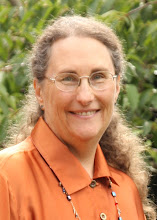I said I would post the definitions of culture I read in the audioconference last night. Here they are:
"the collective mental programming of a people in an environment" - Geert Hofstede, 1980
"everything one must learn in order to behave in ways that are recognizable, predictable, and understandable to a group of people" - Valentine, 1968
"a common set of previously assimilated master plans, from which . . . an infinite number of individual patterns directly applicable to specifric situations are generated" -Pierre Bordieu, 1976
If you want to cite them in your final paper, give the author and date I've mentioned, and then say "cited by Lynne Baab in audioconference 7." I don't have references for them.
Monday, October 6, 2008
Thursday, October 2, 2008
last audioconference next Monday
For our last audioconference, please come prepared to talk about three things:
1. Of all the topics we talked about in this paper, which one would you say has the most impact on New Zealand churches?
2. Are there topics you wish we had addressed in this paper?
3. If you were asked what one thing you wish Christians in New Zealand understood about multi-cultural ministry or cross-cultural ministry, what would you say?
I'm sorry I haven't been able to write on this blog for the past few weeks. I've been so sick. But I'm definitely getting better and am looking forward to our last evening together.
1. Of all the topics we talked about in this paper, which one would you say has the most impact on New Zealand churches?
2. Are there topics you wish we had addressed in this paper?
3. If you were asked what one thing you wish Christians in New Zealand understood about multi-cultural ministry or cross-cultural ministry, what would you say?
I'm sorry I haven't been able to write on this blog for the past few weeks. I've been so sick. But I'm definitely getting better and am looking forward to our last evening together.
Followup from last audioconference
I thought you'd be interested in hearing about a lecture by Anglican archbishop David Moxon that I heard last week. He talked about something that happened at the Lambeth conference recently. The Lambeth conference is a gathering of Anglican bishops from all over the world.
You may be familiar with the United Nations Millenium Goals (http://www.undp.org/mdg/basics.shtml). They are goals for 2015 related to aspects of world poverty, many of the same ones we talked about in the last audioconference.
Archbishop Moxon said that at the Lambeth conference, representatives of the United Nations came to speak to the delegates about the Millenium Goals. These U.N. representatives said that the church is indispensible in meeting those goals for two reasons. First, many of the development agencies that work with the poor around the world are Christian organizations, and these U.N. people said that Christian development groups are essential to help meet the goals because they do so much to address poverty.
The second way Christians are influential is something I had never thought about before. Christians, as citizens, can let their voices be heard, urging politicians to help meet the Millenium Goals. Archbishop Moxon said this applies to all kinds of countries, not just "rich" countries. Even countries in the 2/3 world set policies that have an impact on the poorer people in those countries, and when Christians speak up and urge that governments help their poorer citizens or help poor people in other countries, politicians listen. Or at least they listen sometimes! Christian leaders, then, can take on the role of encouraging other Christians to speak up about world poverty and the Millenium Goals, as well as speaking up themselves. I found this idea fascinating, challenging and encouraging.
It's really nice to know that U.N. leaders are appreciative of the efforts of Christians.
You may be familiar with the United Nations Millenium Goals (http://www.undp.org/mdg/basics.shtml). They are goals for 2015 related to aspects of world poverty, many of the same ones we talked about in the last audioconference.
Archbishop Moxon said that at the Lambeth conference, representatives of the United Nations came to speak to the delegates about the Millenium Goals. These U.N. representatives said that the church is indispensible in meeting those goals for two reasons. First, many of the development agencies that work with the poor around the world are Christian organizations, and these U.N. people said that Christian development groups are essential to help meet the goals because they do so much to address poverty.
The second way Christians are influential is something I had never thought about before. Christians, as citizens, can let their voices be heard, urging politicians to help meet the Millenium Goals. Archbishop Moxon said this applies to all kinds of countries, not just "rich" countries. Even countries in the 2/3 world set policies that have an impact on the poorer people in those countries, and when Christians speak up and urge that governments help their poorer citizens or help poor people in other countries, politicians listen. Or at least they listen sometimes! Christian leaders, then, can take on the role of encouraging other Christians to speak up about world poverty and the Millenium Goals, as well as speaking up themselves. I found this idea fascinating, challenging and encouraging.
It's really nice to know that U.N. leaders are appreciative of the efforts of Christians.
Subscribe to:
Comments (Atom)
